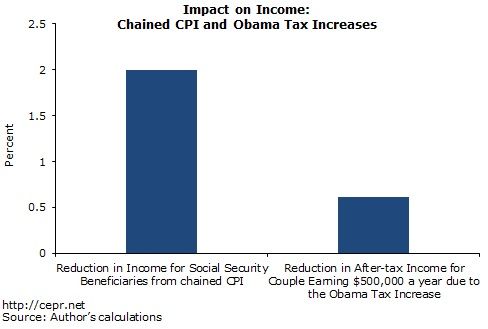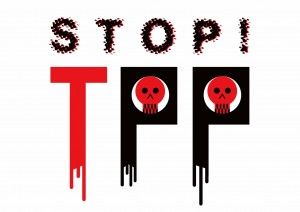Pres. Barack Obama has released his proposed budget that include cuts Medicare and linking Social Security payments to Chained CPI in hopes (there is that ugly word again) of gaining “bipartisan” (another bad word) from Congressional Republicans. Never mind that the fact that the majority of voters do not want cuts to the top three social safety programs, the president is willing to sacrifice the disable, veterans and the elderly for a few tax changes that even if passed, would most likely be reversed in the next six months. This is not “compromise,” it is a sell out of the majority of Americans.
Huffington Post‘s Sam Stein has the breakdown of the proposal that will be releases in all its full gory details next Wednesday:
- The budget would reduce the deficit by $1.8 trillion over ten years — $600 billion of this reduction would come from revenue raisers, and $1.2 trillion would come from spending reductions and entitlement reforms;
- It would change the benefit structure of Social Security (chained-CPI);
- It would means test additional programs in Medicare;
- All told, it would include $400 billion in health care savings (or cuts);
- It would cut $200 billion from other areas, identified by The New York Times as “farm subsidies, federal employee retirement programs, the Postal Services and the unemployment compensation system;”
- It would pay for expanded access to pre-K (an Obama priority) by increasing the tobacco tax;
- It would set limits on tax-preferred retirement accounts for the wealthy, prohibiting individuals from putting more than $3 million in IRAs and other tax-preferred retirement accounts;
- And it would stop people from collecting full disability benefits and unemployment benefits that cover the same period of time.
Dean Baker shows that these cuts over time are worse for seniors than for the rich:
By comparison, Social Security is about 70 percent of the income of a typical retiree. Since President Obama’s proposal would lead to a 3 percent cut in Social Security benefits, it would reduce the income of the typical retiree by more than 2.0 percent, more than three times the size of the hit from the tax increase to the wealthy.
The congressional Democratic apologists insist that “certain lines won’t be crossed” which translates that if Republicans realize they can get the cuts to “entitlements’ that they want by temporarily sacrificing the tax and revenue increases this is a done deal.
The president is willing to agree to the entitlement cuts only in exchange for tax hikes in other areas.
“The president has made clear that he is willing to compromise and do tough things to reduce the deficit, but only in the context of a package like this one that has balance and includes revenues from the wealthiest Americans and that is designed to promote economic growth,” the administration official said. “That means that the things like CPI that Republican Leaders have pushed hard for will only be accepted if Congressional Republicans are willing to do more on revenues.”
This is political suicide for Democrats up for election. The Republicans will forever blame Democrats for destroying these programs.
As Paul Krugman points out, this makes no sense other than just Pres. Obama’s need to seek approval of the “Serious People:”
So what’s this about? The answer, I fear, is that Obama is still trying to win over the Serious People, by showing that he’s willing to do what they consider Serious – which just about always means sticking it to the poor and the middle class. The idea is that they will finally drop the false equivalence, and admit that he’s reasonable while the GOP is mean-spirited and crazy.
But it won’t happen.
No, that won’t happen because underneath it all this is what Obama has wanted all along and has continuously said so since 2006. It’s not the GOP that is “mean-spirited and crazy” it’s Obama.


 The Electronic Frontier Foundation reports that
The Electronic Frontier Foundation reports that
Recent Comments